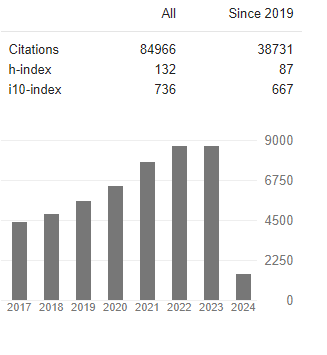The Effect of Biochar on the Salinity Reduction in Mung Bean Plant
Abstract
Zahra Norolahi, Masumeh Farasati and Ali Nakhzari Moghaddam
The aim of research was investigation of biochar effect on salinity reduction in mung bean plant. The experiment was performed in a randomized complete block design with two replications and three treatments of saline, non-saline and saline + biochar. A silty soil was used for the plant substrate while calcium chloride and sodium chloride salts were employed in order to create the salinity levels in it. The results of variance analysis associated with the studied traits showed that the simple effects of salinity and plant organs as well as the interaction of salinity×plant organs on the calcium, magnesium, chlorine, sodium, potassium, pH and electrical conductivity (EC) levels are significant at a level of 1%. Also, the results of comparing the mean interaction of salinity×organ indicated that the highest calcium content in most cases is associated with the shoots. The biochar consumption has been found to reduce the calcium adsorption at high salinity in leaves and roots and increase it in the stem and pod. Increasing the calcium chloride and sodium chloride salinities in plant organs, the concentration of potassium decreased compared to calcium and with increasing salinity levels, the concentration of all mentioned elements increased in most treatments. The results showed that EC value was found to be improved by applying biochar. According to the results, effect of organ, salinity and organ× salinity on all characteristics was significant. It has been found that the salinity resistance mechanism of this plant is the salt tolerance through the accumulation of ions in its organs. Therefore, biochar can be used in the improvement of saline soils, for the optimal use of soil resources and saline waters.




